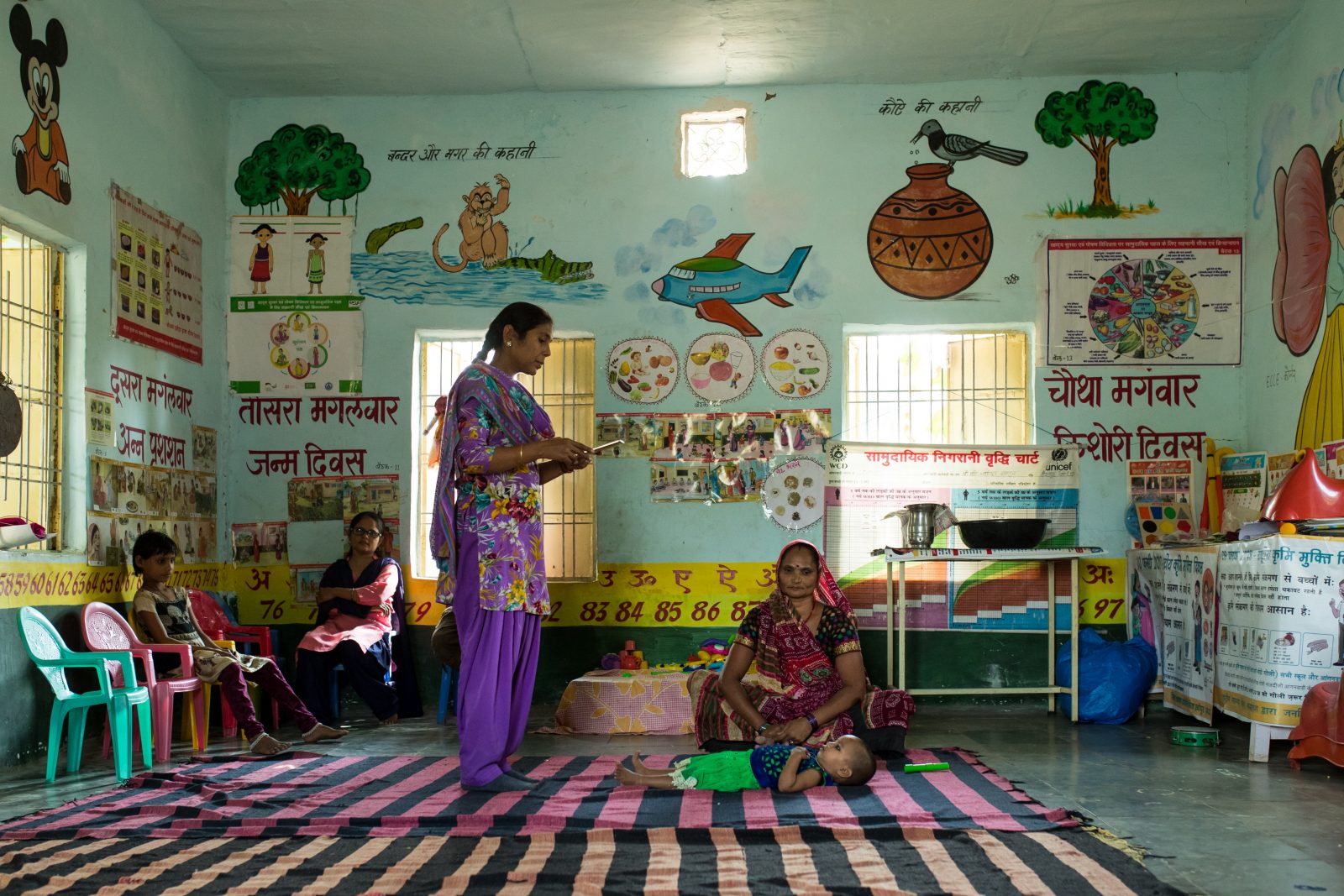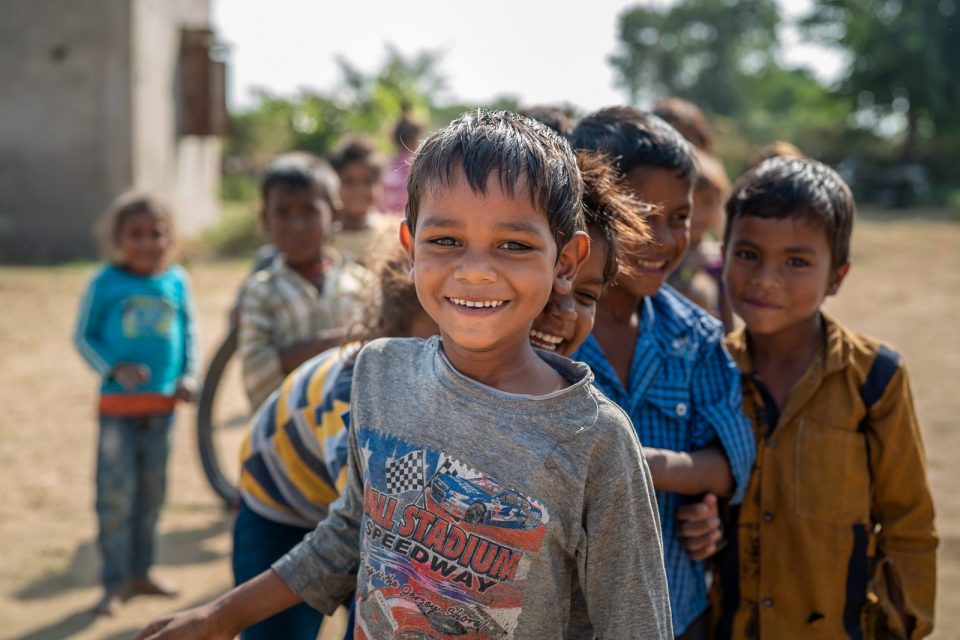According to findings from the UN, 821 million people worldwide are starving. Every day, 15,000 children die as a result of malnutrition. In addition, 22 percent of all children under the age of five (151 million in total,) suffer from diet-related growth delays.
To help combat these worrying statistics, Welthungerhilfe, Munich Re, Social Impact Partners and Microsoft Germany are presenting a mobile app as part of the Federal Government’s Digital Summit in Nuremberg, which is designed to help combat global hunger. The app, developed by Welthungerhilfe, runs on Microsoft’s Azure cloud platform, and is currently being prototyped in India using deep-learning models from Microsoft Azure’s Artificial Intelligence (AI) services.
In the future, the Child Growth Monitor app will help detect malnutrition in children at an early stage, to provide them with targeted care, while helping more people with limited resources.
Jochen Moninger, Head of Innovation at Welthungerhilfe (WHH) and initiator of the project, expresses his ambitious goal: “I want to make it impossible for anyone in the world to starve as of 2030.” To solve this problem, I rely on digital technologies, including AI.”
AI for good
One approach for effective aid is to identify children under the age of five who are suffering from malnutrition more closely than before, in order to target them with appropriate food. Often, the lack of a varied diet is the reason for malnutrition. Help at this age is particularly important, as the physical development during this time also determines how well the children can learn later:
“It has been proven that malnutrition affects children’s education and their future income – and thus the economic development of a country” explains Drs. Michael Menhart, chief economist of Munich Re. “We have a strong interest in breaking this vicious circle and helping countries, families and children to escape hunger and poverty.”
It’s difficult to tell by conventional means whether a child suffers from malnutrition. Manually measuring weight and other measurements is an error-prone process. Specialized calibrated devices are also very sensitive and are not suitable for transport to remote areas due to their weight.
The new mobile app, in contrast, uses a smartphone camera in conjunction with an infrared sensor to create 3D scans of children from millions of millimeter-accurate measurements, provide precise measurements in an easy, fast manner. The collected data is transferred anonymously to Microsoft Azure, and nutritionists and IT specialists can then evaluate the data with deep learning models from Azure’s AI services and feed it back into the app.
The app learns to continuously improve its data models and in turn, improves its predictions regarding the health and nutritional status of children. More than one hundred thousand 3D children’s scans are expected to be needed to produce valid forecasts. “In order to be able to analyze this large amount of data, we also depend on external knowledge,” says WHH manager Moninger. “And as the world’s largest reinsurer, Munich Re is a leading specialist in the field of data analysis.”

Munich Re is also committed to sustainable risk management and innovative financial solutions. For this, the company has founded a joint venture with Hollard Insurance Group: Social Impact Partners (SIP). SIP’s core function is to provide tailor-made financing and insurance solutions for all types of social impact organizations as a link between Munich Re and non-governmental organizations (NGOs): “The Child Growth Monitor is another step towards getting closer to the ‘Zero Hunger’ goal of the Sustainable Development Goals. This innovative solution not only allows for better use of existing resources, but also to measure the efficiency of measures. This will make new funding opportunities in the NGO sector possible in the first place”, says Hanna Grewe of Social Impact Partners.
Susanne Mehrtens, Senior Industry Marketing Manager at Microsoft, states that “The large amount of complex data requires state-of-the-art technologies to make them usable for Welthungerhilfe. Azure’s AI services provide solutions that continually improve and make decisions on their own.”
In October, Mehrtens was part of a six-member team from Welthungerhilfe, Microsoft Germany and the digital agency PAGES Media, which travelled to Sawadi and Heerapur – two villages in the Indian state of Madhya Pradesh – to see the technology initiative for the Child Growth Monitor in action. They wanted to gain a better understanding of the problems and challenges faced in the real world, in order to help make improvements in the future. Mehrtens’ travelogue encompasses her profound first-hand experiences of the visit.
Overall, this project is already having a high impact and shows that modern technologies can make a real difference in combating hunger. The app not only allows one to measure significantly more children, but also provides accurate measurements in the process, resulting in more than twice as many children receiving nutritional support. This increase in efficiency alone could free up hundreds of millions of Euros in India which can be used for other humanitarian purposes.
Make Your Wish: Microsoft is looking for ideas that change the world
Microsoft Germany is looking for more ideas for AI projects such as the Child Growth Monitor – as well as developers and partners who are implementing them. The Make Your Wish campaign is a call to work together for a better future using artificial intelligence. Whether it’s a spontaneous idea or a long-term wish for the future, you can submit your proposal here (participation is free.) After the examination and confirmation of the request, partners, developers or startups can contact the project and start the implementation.
Additional Information
A reference package with Welthungerhilfe and Munich Re consists of several content pieces in German and English:
- Video: DE | EN
- Press release: DE
- LinkedIn: LinkedIn article
- Blogpost on Microsoft Transform: EN
- Written customer story: DE | EN
- Personal Travelogue: DE | EN
- Blogpost – Interview with Jochen Moninger, Welthungerhilfe: DE | EN
- Blogpost – Interview with Dr. Menhart, Munich Re: DE | EN
There are also two PointDrive presentations which include all of the content pieces above: DE | EN




